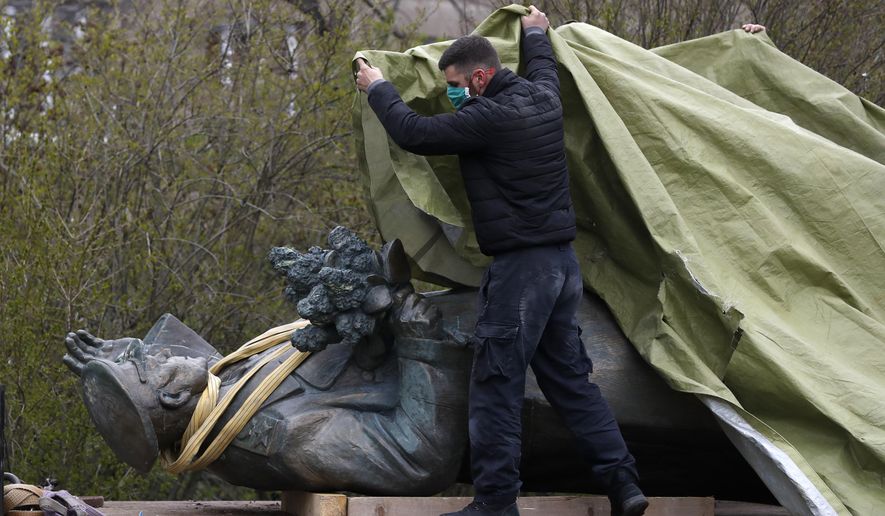MOSCOW (AP) - Russia’s Foreign Ministry on Monday ordered two Czech diplomats to leave the country in a quid-pro-quo response to Prague’s expulsion of Russian diplomats, amid tensions rooted in differences over history.
The ministry said it summoned the Czech ambassador Monday to announce the move, saying the two diplomats must leave Russia by Wednesday.
Kremlin spokesman Dmitry Peskov said that Moscow wouldn’t tolerate “unfriendly actions” by Prague and would always respond in kind. He added, however, that “we remain interested in supporting and developing good partner-like and mutually beneficial ties with the Czech Republic.”
“I hope that the whole matter has been solved by this reciprocal step,” Czech Foreign Minister Tomas Petricek said.
Earlier this month, the Czech government ordered two Russian diplomats to leave the country. Czech Prime Minister Andrej Babis said the nation’s spy agency discovered that one of them had spread false information about a Russian assassin allegedly targeting Czech politicians.
The alleged assassination plot surfaced in April when a magazine reported that Czech intelligence services suspected that a Russian who arrived in Prague on a diplomatic passport was sent to poison Prague Mayor Zdenek Hrib and Prague 6 district mayor Ondrej Kolar with a potent toxin.
Kolar, Hrib and the mayor of Prague’s Reporyje district, Pavel Novotny, all consequently received police protection.
Moscow has dismissed the allegation as baseless. Russian Foreign Minister Sergey Lavrov ridiculed the claims published in the magazine, saying the notion that Czech authorities spotted a Russian man equipped with ricin and let him through didn’t make sense.
The three politicians had been involved in actions that previously angered Russia.
In February, a Prague square in front of the Russian Embassy was renamed after slain Russian opposition leader Boris Nemtsov, with Hrib unveiling the new nameplate.
In April, Kolar’s district removed a statue of Soviet World War II commander Ivan Konev, whose armies completed the liberation of Prague from Nazi occupation. The statue’s removal caused outrage in Russia, which has angrily lashed out at any attempts to diminish the nation’s decisive role in defeating the Nazis.
Novotny provoked Moscow’s ire with plans to build a monument to the soldiers of Gen. Andrei Vlasov’s army. Over 300 of them died when they helped the Czech uprising against Nazi rule and contributed to Prague’s liberation. Their role is controversial for Russia, however, because they previously fought against the Red Army alongside Nazi troops.
____
Karel Janicek in Prague contributed to this report.




Please read our comment policy before commenting.